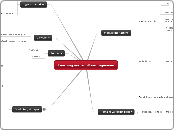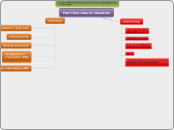Learning and adult neurogenesis
Gould target paper
Task 4: Adult neurogenesis
Evidence has accumulated suggesting a relationship between newly born cells (neurogensis) in the hippocampus and various types of learning and memory.
New neurons in the DG:
- Become synaptically integrated
- Attain morphological and biochemical characteristics of neurons
- Generate action potentials
Do newly born cells in the dentate gyrus participate in learning and memory?
Results
Effect on proliferation checked = BrdU injection during training. = No difference number of cells in conditioned animals and controls
Likely that increased number of cells is caused by enhanced survival, not proliferation. = significant differences among groups of pyknotic cells in subgranular zone.
Exposure to similar environmental conditions had no effect on the number of BrdU-labeled cells in the dentate gyrus.
The majority of new hippocampal cells were located in the granule cell layer
Learning of the hippocampus-dependent tasks, increased the number of BrdU-labeled cells in the dentate gyrus, compared to naive controls.
Associative learning tasks
Hippocampus-independent
Cue training Morris water maze
Delay protocol eyeblink response conditioning
Hippocampus-dependent
Spatial navigation learning Morris water maze
Trace protocol eyeblink response conditioning
thymidine analog bromodeoxyuridine
Injected one week before training
Subparts
Survival
Proliferation
2 Regions
subventricular zone, lateral ventricles, forebrain
the subgranular zone, dentate gyrus
Types of studies
Effect of new neuron depletion on learning and memory
irradiation
Antimitotic drugs
Timing and duration of neuron depletion may be a critical factor in determining learning deficits.
Can induce nonspecific effects
Studies that examine influence of learning on number new neurons
Mixed and incomplete evidence, due to lack of knowledge of mechanisms of these new cells and varying protocols.
Studies that correlate number new neurons with learning abilities
Available evidence is incomplete and mixed. Both evidence for and against role neurogenesis in learning.
Pastalkova target paper
Does not seem to link to the topic
Modulating factors
Age of the new cells at time of learning
Older newborn cells survival seems to decrease by learning.
Young newborn cells (1 week) survival seems to be enhanced by learning.
Method uses
BrdU labeling
Confounding factors
Timing of the labelling
Subjects should be treated with the tracer and killed within 24 hours (before end of complete cell cycle)
Timing should be immediately before or within hours after testing
Dilution of label due to cell division
Underestimation
Overestimation
Changes in integrity blood brain barrier may influence number of cells labeled
Does also detect DNA repair
Training protocols
This relationship does not extend itself to training with all types of tasks.
More training trials associated with no effect or decreases in survival.
Fewer training trials associated with enhanced cell survival.
Mouse specificities
sex
age
species
strain
Stress
decreases proliferation
Enriched environment
Physical activity
increase proliferation









